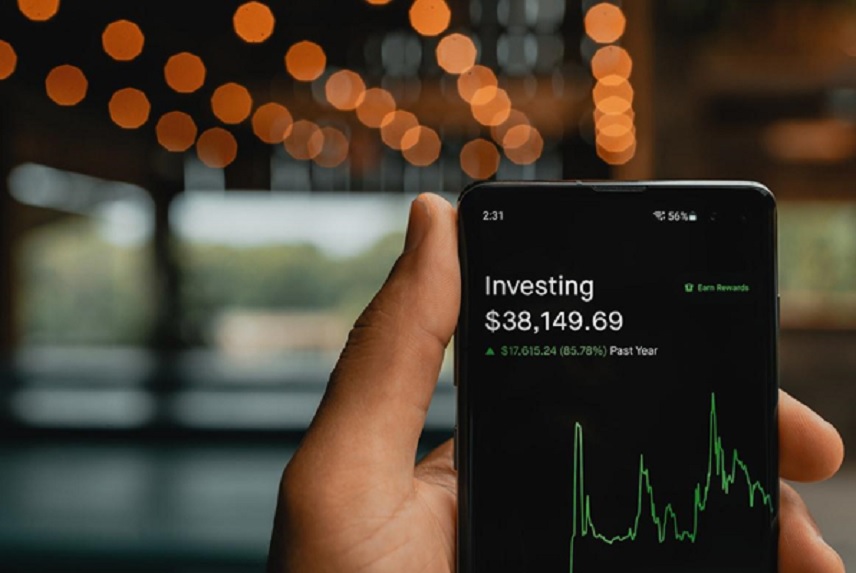Economy
How a Small Business Owner Can Invest in Forex

Elevate your small business by increasing your available capital through our guide on how business owners can invest in the forex market.
How to Invest in Forex as a Business Owner
Most people who are building a retirement nest egg or hoping to make a big purchase may want to grow their savings through investment. Forex is very useful for such a purpose, as there are few barriers to entry and the learning curve is not very steep.
What many do not realize, however, is that small businesses can also benefit from trading forex. Using platforms such as OANDA, small business owners can ensure they have access to money in other currencies while investing their capital with the hopes of turning a profit on most trades.
Below is a guide that explains how you can start investing in currency today as a small business owner.
Why Currencies Fluctuate in Value
The key to investing in any asset or security is to predict whether the asset in question will rise or fall in value. Stocks fall and rise based on the perceptions of a company and its performance. Currencies rise and fall in value based on supply, demand, and other factors.
Currencies with high inflation are likely to see a drop in the value of their currency, as the country has less purchasing power due to inflation. Higher interest rates can also impact currency values, raising them, as investors who have money in that currency can now get higher returns on their funds. Lower interest rates usually see a drop in currency value.
Political stability, government debt, and the amount of foreign currency the central bank of the country in question owns can also impact the value of that country’s currency. If there is instability, the currency is likely to fall in value, while central banks can use foreign currencies to weather volatility in their currency’s value.
Why Trade in Currencies?
Many business owners may wonder why they need to trade in currencies. There are two primary reasons: having access to money in other currencies and making a profit on your existing capital.
If you have money sitting in your business account, putting it to use in the forex market is a great way to increase returns. Rather than keeping it in a company checking or savings account, you can get better returns through trading forex a few times a week.
Even if you are not interested in growing your capital through forex, but you plan to do business in other countries, using the market is useful. The forex market can help you access the best exchange rates while accruing small profits on trades.
Types of Forex Trades
There are two significant forms of trading foreign currencies, spot trading and futures trading. A spot trade is extremely simple, as you agree to exchange currencies with another party at a set price. The exchange rate is determined by the present value of both currencies.
A futures trade is a little more complex, as it involves buying or selling a currency for another at a set future date. A trader may engage in a futures trade if they believe the value of a currency will rise or fall within a set period of time.

Currency Pairings
When you first create an account at a site that allows you to trade on the Forex market, you will likely see a lot of currency pairings. You are trading in pairings, such as GBP/USD or EUR/USD. The pairings signify the two currencies you are exchanging, such as exchanging a Great British Pound for a United States Dollar or a Euro for a US Dollar.
The currencies that make up most of the Forex market are the US Dollar, Canadian Dollar, Great British Pound, Euro, Japanese Yen, Australian Dollar, and the Swiss Franc. You can trade other currencies, but finding other investors to complete spot trades and futures trades may be a little more difficult.
Liquid, 24-Hour Market
A significant advantage of the Forex market is that you are taking part in a highly liquid market that is active nearly 24 hours a day, seven days a week. Trading in foreign currencies opens on Monday morning in Australia and Asia and is ongoing 24 hours a day until Friday evening in the United States or South America.
The Forex market is extremely liquid, as you can complete spot and futures trades in a matter of seconds. If you are trading major currencies, finding a buyer that takes the opposite view of your investment is extremely easy.

Grow Your Business Through Forex
Business owners need to take advantage of every available resource if they are to grow their capital. Whether you are accessing capital through business loans, investors, or other means, you can increase the money available to your operation through trading.
While you may not have time to become an expert in stocks, the forex market is a lot easier to learn. Trading Forex allows you to access foreign currencies, which may be useful for doing business in other countries. You can also make a profit on most trades, provided you have some understanding of how the forex market works, and why currencies rise and fall in value.
If you are self-employed or running a small business, leveraging the forex market is a great way to put your capital to use.
Economy
Grey to Cut Cross-Border Payment Costs with New USD Offering

By Adedapo Adesanya
A cross-border payments solutions company, Grey has expanded its business banking platform to include US Dollar corporate accounts, bulk international payments, and USDC stablecoin support, all integrated into a single system.
The company is positioning itself as a low-cost, faster alternative to traditional international banking, particularly for businesses in emerging markets as it enables companies to open US Dollar accounts, receive global payments, and send payouts to 170+ countries, including bulk transfers, within minutes.
Grey aims to solve common cross-border payment challenges, particularly the high transfer costs that often range between 6 and 7 per cent of transaction value, prolonged settlement cycles that can stretch across several days, and the limited access many businesses face when trying to open and operate foreign currency accounts. In addition, companies frequently contend with hidden intermediary fees and poor foreign exchange transparency, both of which undermine cost predictability and effective cash flow management.
By integrating USD business accounts and USDC stablecoin functionality into its platform, Grey enhances its value proposition around faster settlement, clearer pricing structures, improved cost efficiency, and broader global accessibility. The expanded capabilities enable businesses to manage international transactions with greater speed, transparency, and operational control.
“Businesses may operate without borders today, but access to reliable global banking remains uneven, particularly for companies in high-growth markets,” said Mr Idorenyin Obong, Co-founder and Chief Executive Officer of Grey. “We’re closing that gap and enabling businesses to move money faster, with greater transparency and control, wherever their clients or partners are based.”
“When payments are delayed, or costs are unpredictable, growth stalls,” added Mr Joseph Femi Aghedo, Chief Operating Officer and Co-founder of Grey. “Grey eliminates those friction points, giving businesses a faster, simpler way to manage payroll, supplier payments, and partner payouts across borders. Adding USD and stablecoin capabilities makes these benefits accessible to even more customers.”
Established in Africa in 2020, Grey has a presence in key markets, including the United States, the United Kingdom, and Europe, and has recently expanded its services and operations into Latin America and Southeast Asia.
Since its inception, the company has consistently enhanced its services to empower digital nomads worldwide, regardless of location. Grey’s offerings include multi-currency accounts, low-cost international money transfers, a virtual USD card, expense management tools, and robust security measures.
Economy
Quidax, Lisk to Unlock Stablecoins, On-chain Financial Opportunities

By Aduragbemi Omiyale
A partnership designed to expand access to stablecoins and on-chain financial opportunities for everyday users and businesses has been entered into between Quidax and Lisk.
The partnership provides a critical gateway for the developer community, as builders on the Lisk network can now leverage Quidax’s robust digital asset infrastructure to access stablecoins and local currencies at competitive rates.
This institutional-grade infrastructure is designed to power “future-forward” financial products, ranging from neobanks and cross-border payment platforms to regional exchanges and global fintech solutions. It will also allow Quidax customers to trade and move value seamlessly using USDT, USDC, LSK, and Ether (ETH) on the Lisk network.
The collaboration will also accelerate the adoption of Web3 solutions that solve real-world financial challenges for millions of customers across Africa by combining Quidax’s deep local liquidity and compliant framework with Lisk’s scalable L2 technology.
In 2024, Quidax became the first crypto exchange to receive a provisional operating license from Nigeria’s Securities and Exchange Commission (SEC).
“The partnership with Lisk enables us to extend our platform to serve more people and cater to the increasing demand from products and services that want to integrate our stablecoin and digital assets product to build products across Africa,” the Chief Infrastructure Officer at Quidax, Mr Morris Ebieroma, said.
Also commenting, the Ecosystem Lead for Africa at Lisk, Ms Chidubem Emelumadu, said, “Africa represents one of the most critical frontiers for blockchain innovation, where the demand for reliable and inclusive financial tools is urgent.
“Our partnership with Quidax expands access to stablecoins and on-chain financial opportunities for everyday users and businesses. At the same time, it gives founders building on Lisk the critical infrastructure they need to create solutions that can scale meaningfully across the continent,” she added.
Economy
Customs Urges Freight Forwarders to Adopt Automated Licence, Permit System

By Adedapo Adesanya
The Nigeria Customs Service (NCS) has urged freight forwarders to adopt its automated Licence and Permits Processing system to reduce the cost of doing business.
This advice was given by the Assistant Comptroller-General of Customs, Mr Muhammed Babadede, during a stakeholders’ engagement on automation held in Lagos on Monday.
He noted that the reform responds to longstanding demands for faster, more transparent and simpler procedures for industry stakeholders, disclosing that Comptroller-General of Customs, Mr Bashir Adeniyi, has approved the full automation of the service’s licences and permits processes.
“For years, stakeholders dealt with paperwork, long queues and uncertainty from manual processing. Those days are coming to an end.
“This sensitisation is across all zones. The goal is to ensure stakeholders understand the automated system before implementation,” Mr Babadede said.
He said automation would enable applications and renewals from offices or mobile phones, eliminating visits to customs formations, assuring stakeholders of a fair and consistent process, and reducing errors associated with manual documentation.
He said automation would improve record-keeping, supervision and service delivery without increasing pressure on officers.
The Deputy Comptroller-General, Tariff and Trade, CK Naigwan, also represented by Mr Babadede, reiterated management’s commitment to seamless implementation.
Meanwhile, the Comptroller of Customs for Licence and Permit Unit, Mrs Ngozika Anozie, praised the Comptroller-General for driving innovation within the Service, saying the automation aligns Customs procedures with global best practice and strengthens institutional efficiency.
According to her, the reform reflects the three-point agenda of the Chairman of the World Customs Organisation, Mr Adeniyi, centred on consolidation, collaboration and innovation.
She said the system would enhance the ease of doing business in the maritime sector and boost national revenue generation.
“Automation will cut business costs and reduce travel risks for stakeholders
“They will no longer travel repeatedly to Abuja, paying for transport, hotels and feeding to process licences and permits,” she said, adding that the platform would automatically reject fake documents and accept genuine submissions, curbing fraudulent practices.
“The CGC is determined to sanitise the system, and we are committed to achieving that objective,” Mrs Anozie said.
On his part, the Assistant Superintendent of Customs, Mr Ibrahim Usman, said the Licence and Permit Unit operates under the Tariff and Trade Department.
He explained that the unit ensures proper issuance of licences and permits and compliance with import regulations.
Mr Usman said all licences and permits expire on December 31 of their issuance year.
He added that the portal would become fully operational after nationwide sensitisation, with stakeholders duly informed.
Customs Area Controller, Tincan Island Command, Mr Frank Onyeka, thanked stakeholders for their continued support.
He urged them to take the exercise seriously to achieve seamless processing across Customs operations.
Stakeholders raised concerns about online payment integration and potential technical disruptions.
Officials addressed the questions and pledged continued engagement to ensure smooth implementation nationwide.
-

 Feature/OPED6 years ago
Feature/OPED6 years agoDavos was Different this year
-
Travel/Tourism10 years ago
Lagos Seals Western Lodge Hotel In Ikorodu
-

 Showbiz3 years ago
Showbiz3 years agoEstranged Lover Releases Videos of Empress Njamah Bathing
-

 Banking8 years ago
Banking8 years agoSort Codes of GTBank Branches in Nigeria
-

 Economy3 years ago
Economy3 years agoSubsidy Removal: CNG at N130 Per Litre Cheaper Than Petrol—IPMAN
-

 Banking3 years ago
Banking3 years agoSort Codes of UBA Branches in Nigeria
-

 Banking3 years ago
Banking3 years agoFirst Bank Announces Planned Downtime
-

 Sports3 years ago
Sports3 years agoHighest Paid Nigerian Footballer – How Much Do Nigerian Footballers Earn























